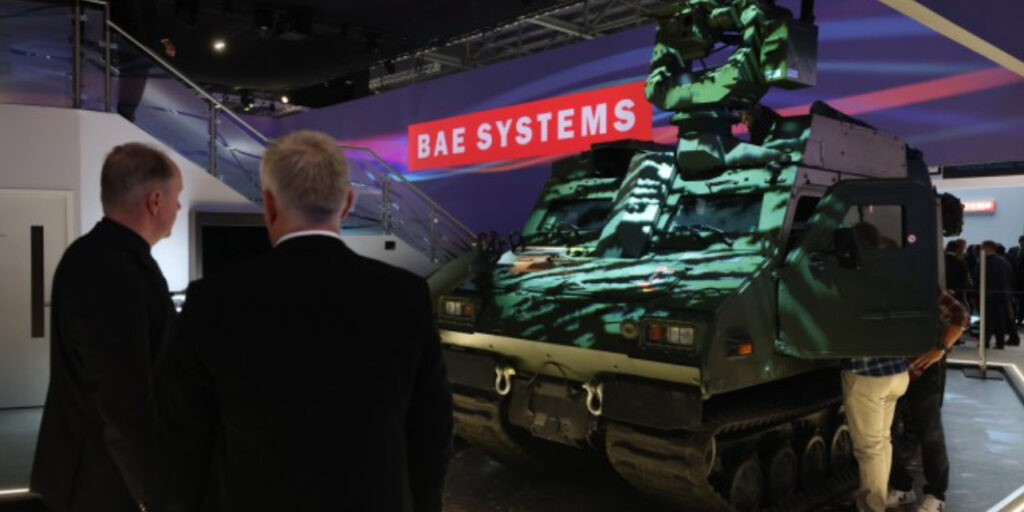British defence firms could be asked to pay to participate in a proposed €150 billion EU arms fund, as part of ongoing negotiations between the UK and Brussels ahead of a major defence summit next month.
The UK and EU are set to finalise a broad security and defence cooperation agreement at a summit scheduled for 19 May. However, diplomats say a separate bilateral deal will be required before British defence companies such as BAE Systems can access the bloc’s new Security Action For Europe (Safe) fund.
The fund, introduced by the European Commission in response to heightened security concerns following Russia’s invasion of Ukraine, is aimed at strengthening the bloc’s defence capabilities.
It will provide low-interest loans to EU member states for the joint procurement of weapons and military equipment.
Crucially, while non-EU nations with existing security pacts can theoretically access the fund, draft regulations stipulate that they must first negotiate detailed agreements specifically covering participation in the Safe programme.
“While the initial pact is non-binding, the real challenge lies in securing a bilateral arrangement that includes a financial contribution from the UK,” one EU diplomat revealed.
Another added that the UK’s defence sector would only be eligible once this second agreement—likely involving a market-access component and a financial fee—is in place.
EU Commission defence spokesperson Thomas Regnier stated that third countries must agree on “specific, mutually beneficial arrangements” regarding their industries’ participation in EU defence procurements.
Negotiators suggest France may push for stricter terms on UK involvement, and officials believe the deal will likely require London to make a financial contribution, though the size—whether administrative or substantial—remains uncertain.
A third EU diplomat confirmed: “A meaningful association with the programme depends on negotiating the rules, contributions, and access terms. That process will take time.”
While a final agreement is widely expected, insiders caution it may place restrictions on the eligibility of UK-manufactured weapons systems.
Under current draft rules, any third-country agreement must guarantee a “fair balance between contributions and benefits.”
Other non-EU nations such as Japan and South Korea, which have their own defence pacts with the EU, will face similar conditions.
However, companies from Ukraine, as well as from EFTA and EEA countries like Norway and Switzerland, will be granted automatic access due to their financial participation in the single market.
EU member states are expected to finalise their own Safe negotiations by next month.
Once agreed, the regulation must be approved by the European Parliament.
There is no certainty that the full €150bn will be utilised, as governments must jointly apply for project funding within six months of the fund’s launch, subject to Brussels’ approval.


